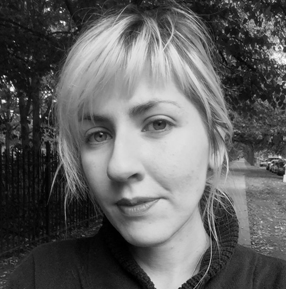Return
There are poets with history and poets without history, Tsvetsaeva claimed living
through the ruin of Russia.
Karina says disavow every time I see her. We, the daughters between countries,
wear our mean mothers like scarves around our necks.
Every visit, mine recounts all the wrongs done against her
ring sent for polishing returned with a lesser diamond, Years of never rest and,
she looks at me, of nothing to be proud of.
I am covered in welts and empty pockets so large sobs escape me in the backroom of
my Landlord's fabric shop. He moves to wipe my tears
as if I’m his daughter
or I’m no one’s daughter.
It’s true, I let him take my hand, I am a girl who needs something. I slow cook bone
grief, use a weak voice.
My mother calls me the girl with holes in her hands, every time I lose something.
All Russian daughters were snowflakes once, and in their hair a ribbon long
as their body knotted and knotted and knotted into a large translucent bow.
It happens, teachers said, that a child between countries will refuse to speak.
A girl with a hole in her throat, every day I opened the translation book.
Silent, I took my shoes off when I came home, I
put my house clothes on.
We had no songs, few rituals. On Yom Kippur, we lit a candle for the dead
and no one knew a prayer.
We kept the candle lit, that’s all.
The wave always returns, and always returns a different wave.
I was small. I built a self outside my self because a child needs shelter.
Not even you knew I was strange,
I ate the food my family ate, I answered to my name.
Copyright © 2018 by Gala Mukomolova. Originally published in Poem-a-Day on February 9, 2018, by the Academy of American Poets.

